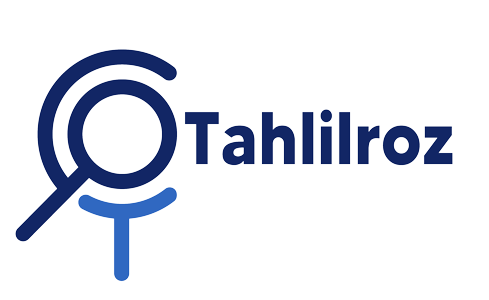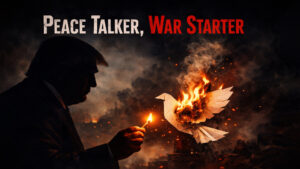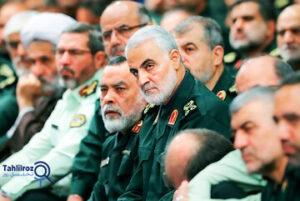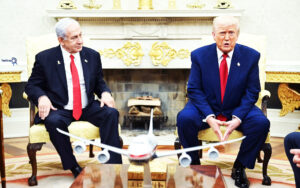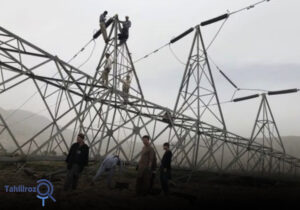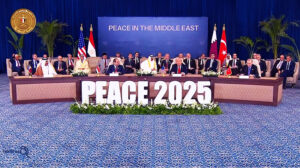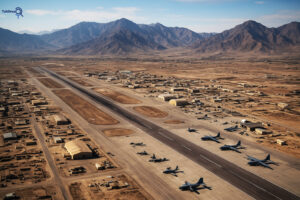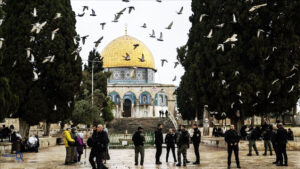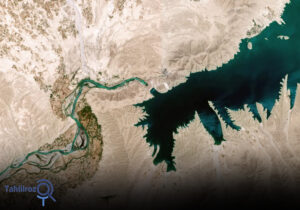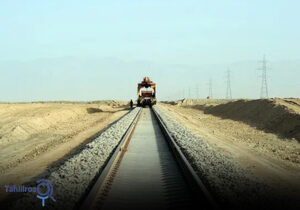The 12-day war between Iran and Israel in April 2024 marked a historic shift in the dynamics of Middle Eastern power politics. While many Western analysts framed the outcome as a military win for Israel, a closer examination of the broader strategic, psychological, and regional impacts reveals a different picture — one in which Iran achieved its goals, shifted red lines, and exposed vulnerabilities in Israeli deterrence.
Why is Iran considered as the winner of the 12-day war?
1. Breaking the Psychological Barrier: Iran’s First Direct Strike on Israel
For over four decades, Iran avoided direct military confrontation with Israel, relying on proxy forces like Hezbollah and the Houthis. But for the first time in history, Iran launched a direct and massive missile and drone strike on Israeli territory — signaling a major evolution in strategy. This act shattered the long-standing psychological and strategic taboo.
-Iran proved it was willing to engage directly.
-The sheer scale of the attack_ over 300 drones and missiles_ demonstrated Iran’s missile and UAV capabilities.
-It redefined the region’s rules of engagement, shifting deterrence dynamics in Iran’s favor.
2. Forcing Israel into a Defensive Posture
Despite its strong military, Israel was forced into a fully defensive position, relying on external allies — the U.S., UK, France, Jordan, and others — to help intercept Iranian missiles. Iran, on the other hand, fought alone, without activating Hezbollah or other allies.
-Israel’s dependence on foreign help exposed its vulnerability in a sustained multi-front war.
-The fact that Iran’s threat alone mobilized NATO powers suggests Tehran’s regional weight is real.
3. Deterrence Achieved: Red Lines Were Drawn
The conflict began after Israel bombed Iran’s consulate in Damascus, killing top IRGC commanders. Before April 2024, such acts went unanswered. This time, Iran responded forcefully and immediately, proving it could retaliate and impose costs.
-Israel now knows there’s a price to pay for targeting Iranian assets or leaders.
-Iran demonstrated that it can reach deep inside Israeli territory and overwhelm its defenses in a future war — especially if Hezbollah, Houthis, and Iraqi militias are involved.
4. No Major Escalation: Iran Controlled the Narrative
Despite the scale of the operation, Iran kept the war limited, signaling maturity and strategic discipline.
-It avoided civilian casualties, hitting military targets or symbolic infrastructure.
-Iran sent a message of calculated retaliation, not irrational escalation — enhancing its international legitimacy.
By contrast, Israel’s retaliatory strike was limited and carefully calibrated to avoid escalation. That’s a sign that Israel, not Iran, was deterred.
5. Regional Support and Soft Power Boost
Iran’s image in the “Axis of Resistance” — including Lebanon, Syria, Iraq, Yemen, and Palestine — skyrocketed after the attack.
-For many in the region, Iran appeared as the only country willing to confront Israel head-on.
-This boosted Iran’s soft power among anti-Israel populations, especially after Israel’s continued attacks on Gaza during the same period.
6. Strategic Messaging to the U.S. and Gulf States
Iran’s strike was also a message to Washington and its Gulf rivals:
-It showed the U.S. that Iran has regional reach and is not afraid to act, even under sanctions and isolation.
-It reminded Saudi Arabia, the UAE, and Bahrain that normalization with Israel carries security risks if Tehran is provoked.
This could slow or derail future U.S.-brokered normalization deals, a win for Iran’s strategic vision of a multipolar, de-Westernized Middle East.
7. Technological Resilience and New Era of Drone Warfare
Even though many drones and missiles were intercepted, the volume, range, and coordination of Iran’s attack showed it had achieved strategic depth in weapons development.
-Iran used cheap, homegrown drones to exhaust and test Israel’s multi-billion-dollar Iron Dome and Arrow defense systems.
-If future attacks are combined with Hezbollah and Houthi fronts, Israel’s air defense may not hold.
This laid the groundwork for a war of attrition strategy, which Iran excels at.

Other factors deciding Iran’s victory in 12-day war
Military factors of Iran’s victory
One of the most important factors in Iran’s victory in 12-day war was its advanced missile capabilities and defense systems. Over the past decades, Iran, relying on military self-sufficiency, had developed an arsenal of ballistic missiles, cruise missiles, and suicide drones.
In this war, Iran responded with a massive missile response to the Zionist regime’s military bases in Tel Aviv, Haifa, Ashkelon, and Dimona with Operation “True Promise 3,” which began less than 24 hours after the initial attacks by the Zionist regime. These attacks, with high precision and operational coordination, rendered the Zionist regime’s defense systems such as the Iron Dome, David’s Sling, and the Arrow ineffective.
According to reports, Iran fired more than 3,400 projectiles, including ballistic missiles and suicide drones, at strategic Israeli targets. These attacks caused heavy damage to Israeli industrial infrastructure, power lines, fuel tanks, and military bases. According to the Israeli Ministry of Finance, direct damage to infrastructure is estimated at about $7 billion.
Rapid reconstruction of the command structure
One of Iran’s early challenges in this war was the assassination of senior military commanders such as Major General Mohammad Bagheri, Chief of Staff of the Armed Forces, Major General Gholamali Rashid, Commander of the Khatam Central Headquarters, Major General Mohammad Salami, Commander of the IRGC, and Brigadier General Amirali Hajizadeh, Commander of the IRGC’s Aerospace Force.
However, Iran was able to fill the void left by these assassinations by quickly reconstructing its command and decision-making structure. This flexibility, coupled with coordination between the armed forces, especially the IRGC and the army, allowed for a rapid and decisive response. This rapid response upset the calculations of the Zionist and American regimes, who expected the collapse of the Iranian command structure.
The Zionist regime’s failure to achieve military objectives
The Zionist regime pursued two main objectives in this war: the destruction of Iran’s nuclear and missile capabilities. However, Pentagon reports and satellite images showed that Iran’s nuclear facilities, including Natanz and Fordow, were not seriously damaged despite the widespread attacks.
This was due to Iran’s multi-layered protection of sensitive facilities and the use of advanced technologies. Also, the Zionist regime’s claim that it destroyed 30 percent of Iran’s missile launchers and achieved “complete air superiority” in Tehran was rejected by independent sources.
Domestic social and political factors
Social resilience and national unity
One of the key factors in Iran’s victory in 12-day war was social resilience and national unity. Contrary to the predictions of the Zionist and American regimes, who hoped that widespread attacks and assassinations would lead to internal unrest and discontent, these attacks had the opposite effect. The Zionist regime’s attacks on civilians, hospitals, and cultural centers, such as Farabi Hospital in Kermanshah, sparked public outrage, and Iranians of all political, ethnic, and religious persuasions united around defending the homeland.
This national unity, rooted in Iran’s millennia-old culture and history, was particularly evident in the funeral ceremonies of martyrs in cities such as Tehran, Mashhad, Qom, and Kermanshah. The widespread presence of different ethnicities and religions, including Sunnis and religious minorities such as Armenian Christians, demonstrated an unprecedented unity that surprised the enemy.
Wise Leadership and Crisis Management
The role of the Supreme Leader in managing the crisis of the 12-day war is undeniable. Quick and decisive decision-making, coupled with unifying messages, strengthened the spirit of resistance among the people. Iran’s active diplomacy in conveying firm warnings to the Zionist regime’s supporters, including the United States, Britain, and France, also prevented further escalation of the conflict.
International factors
Support for global public opinion
The widespread support of global public opinion, especially in Islamic countries, played an important role in Iran’s victory in the 12-day war. The Zionist regime’s attacks on civilians and violations of international law, such as Article 2 of the UN Charter, provoked global outrage. In contrast, Iran’s response, which was considered legal under Article 51 of the UN Charter (the right to self-defense), was supported by many countries. Prayers by Muslims around the world for Iran’s victory, especially in the countries of the Resistance Axis, helped strengthen the morale of Iranian forces.
Ineffectiveness of international institutions
The silence of international institutions such as the International Atomic Energy Agency and the Board of Governors regarding the Zionist regime’s attacks on Iran’s peaceful nuclear facilities led to the delegitimization of these institutions, rather than weakening Iran. This allows Iran to advance its nuclear program more quickly with legal justification.
Qatar’s mediation role and US pressure
The final ceasefire, which was established through Qatar’s mediation and the US request, was the result of pressure from the failure of the Zionist regime to achieve its goals and the heavy losses inflicted on this regime. By accepting the ceasefire, Iran imposed the condition of firing the last missile at Beersheba, which was seen as a symbol of Iran’s authority at the end of the war.
Achievements of the 12-day war for Iran
Strengthening regional and global position
The 12-day war consolidated Iran’s position as a regional power. Iran’s ability to confront two nuclear powers (the Zionist regime and the US) simultaneously without surrendering, broke the hegemony of these two countries in the region and the world. Iran’s missile operations against US military bases in the region, especially in Qatar, demonstrated Iran’s determination to respond to any aggression.
Weakening the Zionist regime
The heavy damage to the Zionist regime’s infrastructure, along with the psychological collapse of the residents of the occupied territories who were in shelters for up to 15 hours a day, shattered the Zionist regime’s military and security hegemony. Domestic protests in Tel Aviv and other cities with slogans such as “They lied, we are not safe” indicated the regime’s internal crisis.
Strengthening Iran’s nuclear program
Contrary to the Zionist regime and the United States’ goal of destroying Iran’s nuclear program, this war will lead to the acceleration of Iran’s nuclear developments. The report by Rafael Grossi, Director General of the International Atomic Energy Agency, that there was no serious damage to Iran’s nuclear facilities confirms this success.
Why did Iran win the 12-day war?
Iran’s victory in the 12-day war was the result of a combination of military, social, political and international factors. From a military perspective, Iran’s missile and defense capabilities, along with its flexibility in crisis management, surprised the enemy. From a social perspective, the national unity and social resilience of the Iranians thwarted the enemy’s plans to create chaos.
From a political perspective, Iran’s wise leadership and active diplomacy, along with the support of global public opinion, helped stabilize Iran’s position. Ultimately, the failure of the Zionist regime and the United States to achieve their goals, along with the heavy losses inflicted on the Zionist regime, introduced Iran as the victor in this field.

Iran changed the power equations in its favor
Iran’s 12-day war with the Zionist regime and the United States was a turning point in the history of the Iranian resistance. This war showed that Iran, relying on its internal strength, national unity, and global support, is capable of resisting and winning against nuclear powers.
The achievements of this war, from strengthening Iran’s regional position to weakening the hegemony of the Zionist regime and the United States, sent a clear message to the world: Iran not only will not surrender to aggression, but can also change the power equations in its favor. This victory holds great lessons for the nations and governments of the region and demonstrates the power of faith, unity, and resistance against the arrogant front.
Conclusion: The War That Changed the Rules
While Israel may claim operational success in intercepting the majority of incoming threats, the strategic landscape shifted in Iran’s favor. Tehran showed:
– It is willing and able to strike Israel directly.
– It can impose deterrence without triggering a wider war.
– It enjoys growing regional support and ideological influence.
In modern warfare, victory isn’t just about damage — it’s about changing the rules, reshaping perceptions, and forcing your adversary to recalculate. By that measure, Iran walked away from the 12-day war with a strategic win.
Mohsen Shahrafiee
